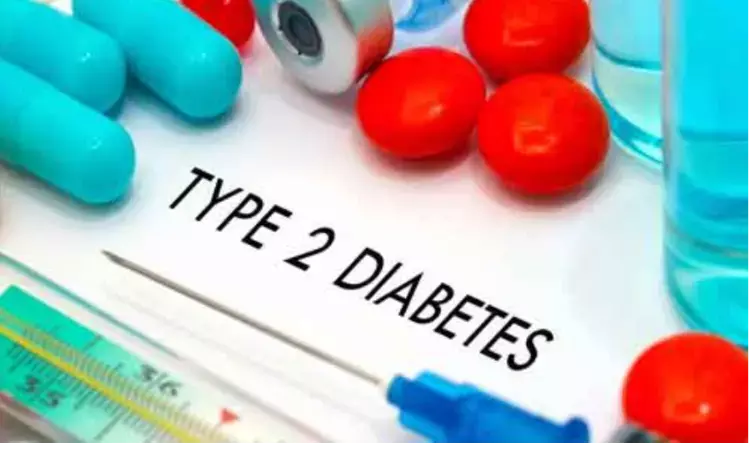- Home
- Medical news & Guidelines
- Anesthesiology
- Cardiology and CTVS
- Critical Care
- Dentistry
- Dermatology
- Diabetes and Endocrinology
- ENT
- Gastroenterology
- Medicine
- Nephrology
- Neurology
- Obstretics-Gynaecology
- Oncology
- Ophthalmology
- Orthopaedics
- Pediatrics-Neonatology
- Psychiatry
- Pulmonology
- Radiology
- Surgery
- Urology
- Laboratory Medicine
- Diet
- Nursing
- Paramedical
- Physiotherapy
- Health news
- Fact Check
- Bone Health Fact Check
- Brain Health Fact Check
- Cancer Related Fact Check
- Child Care Fact Check
- Dental and oral health fact check
- Diabetes and metabolic health fact check
- Diet and Nutrition Fact Check
- Eye and ENT Care Fact Check
- Fitness fact check
- Gut health fact check
- Heart health fact check
- Kidney health fact check
- Medical education fact check
- Men's health fact check
- Respiratory fact check
- Skin and hair care fact check
- Vaccine and Immunization fact check
- Women's health fact check
- AYUSH
- State News
- Andaman and Nicobar Islands
- Andhra Pradesh
- Arunachal Pradesh
- Assam
- Bihar
- Chandigarh
- Chattisgarh
- Dadra and Nagar Haveli
- Daman and Diu
- Delhi
- Goa
- Gujarat
- Haryana
- Himachal Pradesh
- Jammu & Kashmir
- Jharkhand
- Karnataka
- Kerala
- Ladakh
- Lakshadweep
- Madhya Pradesh
- Maharashtra
- Manipur
- Meghalaya
- Mizoram
- Nagaland
- Odisha
- Puducherry
- Punjab
- Rajasthan
- Sikkim
- Tamil Nadu
- Telangana
- Tripura
- Uttar Pradesh
- Uttrakhand
- West Bengal
- Medical Education
- Industry
SGLT2 inhibitors and GLP1-receptor agonists reduce CHD risk in diabetes patients: Study

Italy: Both SGLT2 inhibitors and GLP1-receptor agonists reduce the 10-year risk for cardiovascular disease in type 2 diabetes (T2D) patients without baseline CHD, reveals data from real-world study. After 1 year of treatment, a greater percentage of patients discontinued SGLT2i versus GLP1 RA.
The findings of the study are published in the journal Diabetes Research and Clinical Practice.
Ernesto Maddaloni, Sapienza University of Rome, Rome, Italy, and colleagues aimed to evaluate the effect of glucagon-like peptide1 receptor-agonist (GLP1 RA) and sodium-glucose co-transporter2 inhibitor (SGLT2i) on the risk of coronary heart disease (CHD) in type 2 diabetes (T2D) in primary cardiovascular prevention, in this real-world study.
For the purpose, the researchers prospectively collected data from 312 patients with T2D, without CHD history, starting treatment with GLP1 RA (n = 174) or SGLT2i (n = 138). UKPDS-RE score was used for estimating 10-years risk for CHD before and 6, 12 and 24 months after prescription.
Key findings of the study include:
- The 10-year CHD risk significantly decreased over 24 months in both GLP1 RA and SGLT2i groups, with 3% and 7% CHD risk reduction already obtained after the first 6 months of GLP1 RA and SGLT2i therapy respectively in both groups.
- Analyses by categories of baseline CHD risk showed significant reductions of CHD risk in the severe risk categories of both groups.
- CHD risk reduction obtained with SGLT2i was higher than with GLP1 RA at 6 and 12 months but not at 24 months.
"This real-world study shows that both GLP1 RA and SGLT2i reduce the 10-year risk for cardiovascular disease in patients with T2D in primary cardiovascular prevention," wrote the authors.
"Further, the median CHD risk reduction was higher in the SGLT2i compared to the GLP1 RA group at 6 and 12 months."
Reference:
The study titled, "Decrease of coronary heart disease risk with GLP1-receptor agonists or SGLT2 inhibitors therapy in patients with type 2 diabetes in primary cardiovascular prevention: A 24 months follow-up study," is published in the journal Diabetes Research and Clinical Practice.
DOI: https://www.diabetesresearchclinicalpractice.com/article/S0168-8227(21)00034-6/fulltext
Dr Kamal Kant Kohli-MBBS, DTCD- a chest specialist with more than 30 years of practice and a flair for writing clinical articles, Dr Kamal Kant Kohli joined Medical Dialogues as a Chief Editor of Medical News. Besides writing articles, as an editor, he proofreads and verifies all the medical content published on Medical Dialogues including those coming from journals, studies,medical conferences,guidelines etc. Email: drkohli@medicaldialogues.in. Contact no. 011-43720751


